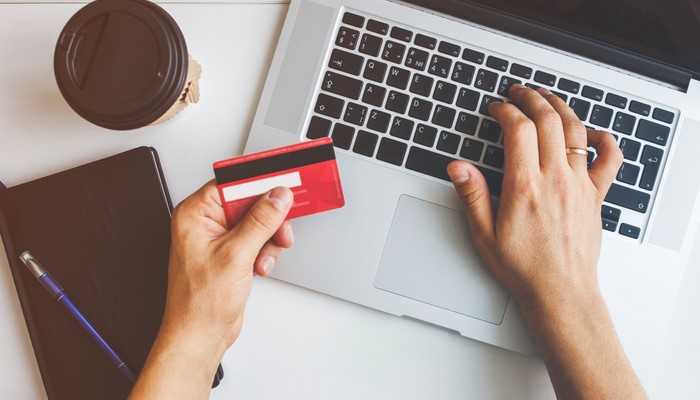According to the 2019 Bankrate report, about 3 in 10 people are living without any emergency savings. When it comes to dealing with debt, the COVID-19 outbreak changes everything we know, believe, and assume. The financial implications of the global pandemic are severe. The coronavirus is a life-threatening virus, but it also might ruin the financial lives of those who never contracted it. The situation led to people being laid off or being out of work, either due to the quarantine or economic conditions. Some people are adequately protected with good health insurance, emergency savings, and paid time off. On the other hand, those who work in hourly paid jobs are at high risk of having their finances eaten away.
Regardless of where you live in the U.S., there is a good chance that the pandemic has affected your finances. According to an April study conducted by TransUnion (credit reporting agency), about 61% of Millennial consumers have felt a financial impact caused by the coronavirus outbreak. The average affected consumers anticipate that they’re about 6 weeks away from not being able to pay their loans or bills.
Debt Settlement Options That Can Help You Manage Debt During COVID-19
On a positive side, federal and state governments have taken steps to support people who are earning less or have lost their jobs during the pandemic. Also, many companies are offering help to people struggling financially. Let’s take a look at some of the resources and strategies you could use if you are not able to pay your bills or loans due to the crisis.
Don’t take too much from your 401(k) or retirement account
If you cash out or drain your retirement accounts, you will be retiring without money. Your retirement account has a purpose – to keep you financially secure once you retire. In other words, it’s not a piggy bank that you can tap into whenever you need cash. We understand that everyone’s going through a pandemic that has never been seen before in our lifetime, but you should be wary when taking money from it.
In case you change employers or lose your job, a loan from your 401(k) account is probably due and payable. On the other hand, there are positive sides to taking from your 401(k) account in case of financial emergencies, but you must understand all the future penalties for doing so. Take the money out only if you are sure that you can pay yourself back.
The maximum amount of money you can withdraw is $100,000. Thanks to the relaxed rules, you can avoid taxes and penalties associated with regular withdrawals.
Help with mortgage payments and foreclosure suspensions
The moment you realize that you can’t make your next mortgage payment, reach out to your loan servicer to ask about options that are available to you. You could be eligible for a forbearance, waiver of late fees, or another form of short-term mortgage relief. The CARES Act imposes a 60-day foreclosure moratorium for federally-backed mortgage loans, including FHA-insured loans, loans purchased or securitized by Freddie Mac or Fannie Mae, loans made, insured, or guaranteed by the Department of Agriculture, and loans guaranteed or insured by the VA. The majority of residential mortgage loans in the country are covered by this moratorium.
Numerous states have imposed a temporary foreclosure moratorium. They are also suspending evictions and sheriff’s sales indefinitely due to the pandemic. Courts have been shut down to prevent the spread of the virus, meaning that foreclosure hearings have also been suspended.
Phone, internet, and utilities
Many government bodies have ordered a moratorium on utility shutoffs. To find a valid and up-to-date list of companies and states that have implemented utility suspensions, go to the Federal Communications Commission website and the Energy and Policy Institute website. Also, many Internet and phone providers are postponing shutoffs and waiving late fees, while some providers are giving unlimited data to current customers and free Internet service to new customers for a limited amount of time. Consider canceling any non-essential services (e.g., satellite or cable) or lowering your mobile plan to a cheaper option.
Contact creditors and lenders
Besides your utility providers, your creditors and lenders may also have special programs designed to help consumers during the coronavirus crisis. Certain debt-relief options are mandated by governments, while others are offered voluntarily. Thanks to the CARES Act, those who are paying off their federal student loans get a six-month break from payments and interest. This relief program is valid until September 30th, 2020.
Your credit union or bank may offer deferment, forbearance, and other forms of financial help on loans you have with them. Many credit card issuers may have also adjusted their policies and may be offering special financial help on a temporary basis. Even if you are financially affected and overwhelmed, don’t consider skipping your payment immediately, but first, reach out to your lender or creditor to see if they’re willing to help. There may be even options available to help you protect your credit score until you get back on track.
Before you settle for any debt-relief options, remember to get the full details and read the fine print to make sure you understand what happens when the payment accommodation ends. Ask the creditor or lender how they will report your account to the credit bureaus. See whether you’ll need to make up your missed payments over time or immediately. Before you agree to any special debt repayment arrangement or debt consolidation loans, it is essential to understand all terms and conditions in detail and get them in writing. Remember, consumers are not the creditors first priority. Profit it. If you need a more powerful debt relief option, it’s best to hire a third party debt management firm. They can lower your monthly payments substantially while settleing your debt for less than what you owe.
Low rate debt-settlement loans
Taking out a loan while experiencing financial problems can be risky because taking on more debt could add to your financial problems. But if you have a good credit score, you might be eligible for a low-rate settlement loan that could give you immediate financial relief and lower your monthly payments. For example, you owe $15,000 in credit card debt, and the interest rate on your credit cards is 17%. Since your credit score is good, you qualify for a two-year debt settlement with a lower interest rate. The amount of debt would remain the same, regardless if it were transferred to a new personal loan or carried on credit cards. However, the monthly payment will drop because of the lower interest rate on your new settlement loan. Overall, a settlement loan can save you money.
More Tips on Managing Your Finances During COVID-19
In a crisis, your credit doesn’t matter
The global pandemic has led to severe economic contractions and a financial crisis on a worldwide scale. People cannot print money in order to put food on the table, while credit can be rebuilt. When people are facing such difficult times, creditors will start lending again by lowering standards. If your credit score gets hurt, you should view that as an annoyance and inconvenience, and not let it stress you that much.
The most important thing to focus on right now is to cancel monthly subscriptions, reduce all discretionary spending, and evaluate other expenses. Having cash on hand is necessary, and it’s the most precious thing you have at the moment. Conserve it as much as possible.
Remaining credit on credit cards
If you are out of money but still have some credit on your credit card, consider maxing them out to be able to buy essentials. If the choice is between overextending your credit cards or not having food on the table, the solution is the credit card option. Also, keep in mind that the government and companies are now offering paid sick leaves, unemployment benefits, stimulus checks (the CARES Act), tax breaks, etc.
Make a plan
If debt collection agencies continue calling you and you have trouble paying your debt, remember that avoiding banks and credit card companies will only make things worse.
Before you consider debt relief options, you need to create a plan. If you are severely affected by the pandemic, you may be less capable of making sound decisions because of elevated emotions, and you might now have experience with such situations. Talk to a lawyer or a professional debt advisor because they can help you create a customized financial solution based on the situation and their experience.
These options may come as great solutions to manage debt during these difficult times and help you survive the financial crisis at hand. Do your best to find ways to boost your income or settle your debts as soon as possible.
The coronavirus outbreak is an unprecedented situation that affects the global economy, so proper debt management is necessary in order to take control of your financial situation. If you are burdened with debt, you need to come up with a plan and understand how debt settlement can help you turn things around. Feel free to reach out to Churchill Credit Solutions, and our team of professionals will help you tailor the right personal finance strategy for resolving your debts. Let’s talk about debt management plans that are right for you.



